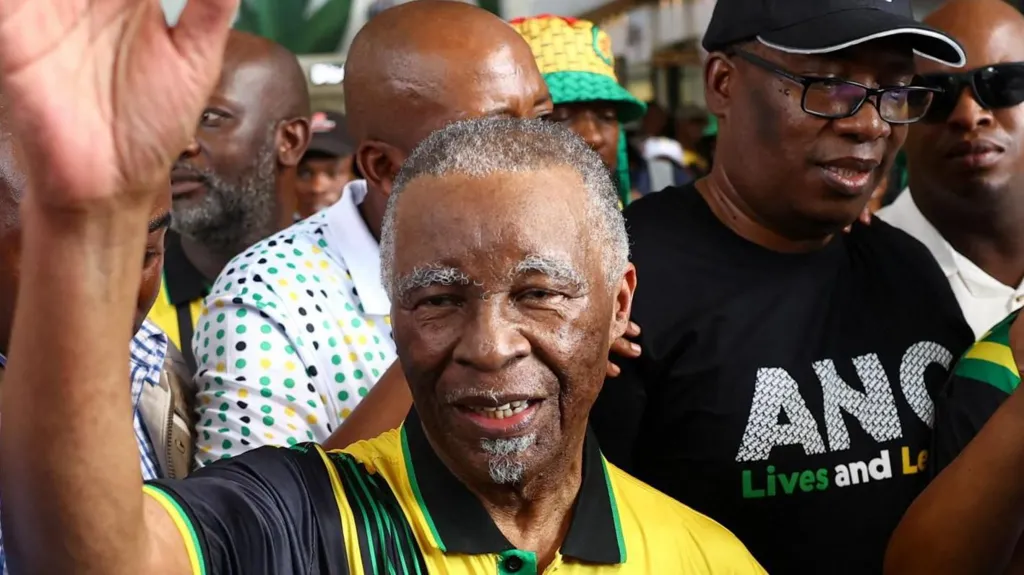Justice Tibatemwa: There was no problem with lifting presidential age limit but……
The Supreme Court in a 4:3 majority judgment on Thursday dismissed an appeal by three parties who had challenged the constitutional court ruling that had upheld age limit clauses from the constitution by parliament.
“The decision of the constitutional court is upheld and this appeal fails,” said Justice Eldad Mwanguhya who read the final verdict on behalf of the Chief Justice Bart Katureebe who was unwell.
Among the three justices who nullified the age limit amendments was Prof. Lilian Tibatemwa-Ekirikubinza who earlier upheld the lifting of the age limit from the constitution.
The Nile Post looks at excerpts from her judgment.
“The argument of the appellants as I understand it is that by removing the age restriction for purposes of eligibility to stand for Presidency or District Chairperson, Parliament added age to the list of factors mentioned in Article 21 (3). 164 5 I find the argument incomprehensible.
It is not only in the area of elective office that the law in Uganda treats people differently based on age.
Ugandan law prohibits an individual who has not attained the age of 18 years to participate as a voter in Presidential Elections (Article 103 of the Constitution); the law prohibits an 10 individual from entering marriage before attaining the age of 18 years (Article 31 (1); a person serving as a Chief Justice must vacate office on attaining the age of 70 years (Article 144 (1) (a)) and Section 12 of the Pensions Act provides for the compulsory retirement of a Public Officer on attaining the age of 60 years.
The 15 list is endless. It cannot be said that the removal of age restrictions for purposes of standing for Presidency has the ripple effect of removing age as a parameter or factor for determining rights legal capacity in all areas of the law.
I am in agreement with the Constitutional Court that the appellants have misconstrued and over stretched the application of the amendment by infection principle. Issue 6: Vacation of the office of President.
Whether the Constitutional Court erred in law and in fact in 25 holding that the President elected in 2016 is not liable to vacate office on attaining the age of 75 years I take note of the fact that although the issues before Court were jointly framed by all parties, it is only the first appellant
I am in agreement with the unanimous decision of the Constitutional Court that the age limit of the President applies only at the time of election.
Where words of the Constitution are clear and unambiguous, they ought to be given their primary, plain, 10 ordinary and natural meaning. It is the term of office provided for in Article 105 (supra) that marks the time when a person holding the office of President should vacate that office. The 1st appellant’s arguments are therefore not sustainable.”
The judge however noted that a defective certificate of compliance made the entire process null and void.
Here is what she said:
A Bill for the amendment of this Constitution which has been passed in accordance with this Chapter shall be assented to by the President only if— (a) it is accompanied by a certificate of the Speaker that the provisions of this Chapter have been complied with in relation to it; …
Section 16 of the Acts of Parliament Act provides for the form the certificate of compliance takes.
In essence the certificate shows which Articles have been amended, the number of majority votes obtained to pass the amendment and a statement to the effect that Chapter Eighteen of the Constitution has been complied with.
The appellants fault the learned Justices of the Constitutional court for holding that the validity of the entire impugned Act was not fatally affected by the discrepancies and variances between the Speaker’s certificate of compliance and the Bill that was sent to 20 the President for assent.
The discrepancies are that the speaker’s certificate of compliance clearly indicated that the impugned Bill only amended Articles 61, 102, 104 and 183 of the Constitution whereas the Bill itself indicated that Parliament had in addition amended Articles 105, 181, 289, 291 and in fact created another 25 provision to wit, 289A.
Counsel for the appellants averred that the discrepancies and which appeared between the certificate and the Bill were gross both in content as well as form and thus contravened Article 263 (2) of the Constitution and Section 16 of the Acts of Parliament 30 Act.
That this had the effect of not only rendering the presidential assent to the Bill a nullity but even the resultant Act.
The Constitutional Court found that the omission of some clauses in the certificate of compliance per se invalidated Sections 2, 5, 6, 8, 9 and 10 of the Constitution (Amendment) Act 2018 on grounds that the Speaker of Parliament did not certify that Articles 77, 105, 181, 289 and 291 had been amended in strict compliance with the 10 provisions of the Constitution. Thus, the purported amendments in respect of these Articles were fundamentally flawed and invalid. However, the Court held that the Certificate was not invalid..
The command is mandatory and does not allow for discretion in the President to assent without the Speaker's certificate of compliance.
Where the President assents to a bill which is not accompanied by 15 a Certificate, the resultant Act would be invalid for non-compliance with the requirement under Article 262(2) (a) [now 263 (2)]
. The resulting Act would not become law and its proposed amendments to the Constitution would not become part of the Constitution.
What is the legal status of a Certificate which speaks to only some of the provisions in a Bill presented to the President for assent and is silent on some provisions?
The answer lies in Section 16 of the Acts of Parliament Act. The Section refers to Part V of the 2nd schedule to the Act which provides for the contents of the 25 Certificate of Compliance.
Part V specifically obliges the Speaker to indicate inter alia (i) the Articles sought to be amended; (ii) the number of members in support at each reading; and (iii) to mention specifically that Article 261 of the Constitution 30 has been complied with.
Constitutional Appeal No. 1 of 2002 in the matter before this Court, the Certificate presented by the Speaker did not mention some of the Sections in the Bill that and was therefore defective. I also find it necessary to answer the question: what is the purpose 10 of the Certificate of Compliance envisaged under Article 263 of the Constitution.
The purpose of the certificate is to assure/guarantee the President that Parliament complied with the requirements of the constitution.
A certificate which tells half the story does not fulfill the legal objective. Furthermore, it is not expected of the 15 President to engage in an inquiry as to what happened in relation to the sections which the certificate does not speak to.
After all, Section 16 (7) of the Acts of Parliament Act states that: “A certificate under Section 16 signed by the Speaker shall be prima facie evidence of the facts stated in the certificate.”
It cannot be expected 20 that the President will inquire into what happened in Parliament. Under no circumstances should a Speaker forward a Bill to the President with full knowledge that it contains provisions passed in contravention of the Constitution.
To assent to a Bill presented for signature, the President handles the Bill and the Certificate together. The certificate is not read in isolation of the Bill and the Bill is not dealt with in isolation of the certificate.
A Certificate which does not comprehensively speak to the Bill cannot be considered a valid certificate.
It was not 30 necessary in the Semwogerere case (Supra) for this Court to specifically state that a valid Certificate of Compliance is mandatory - for indeed a document will only qualify for recognition 94 5 by courts if it is valid. If assent to a Bill which is not accompanied by a certificate renders the assent null and void, assent to a Bill accompanied by a defective certificate leads to the same result – null and of no legal effect.
What the Speaker did at the stage of preparing the certificate should have been done in Parliament – stopping amendments which had not complied with constitutional imperatives from tainting the Bill which would be presented to the President for assent. Instead, with the full knowledge that the Bill contained 15 provisions passed in contravention of constitutional imperatives, the Speaker sent the Bill to the President for assent.
What the President assented to was a Bill which had provisions passed in violation of mandatory constitutional imperatives as well as provisions which perhaps had been passed in compliance with the Constitution.
But the President assents to a Bill and not to sections of a Bill. The assent was therefore to a Bill which was null and void.
Applying the principle of severance to a document which fails to satisfy the objective of a supreme law clause would be reducing the Certificate of Compliance to a mere procedural requirement – the very thing which this Court said it was not, in Semwogerere vs AG (Supra).
I say perhaps because I have already made a finding that the Speaker did not comply with Parliamentary Rules when she placed the Magyezi Bill on the Order Paper.
I therefore find that the discrepancies in the Speaker’s Certificate of Compliance went to the root of the enactment process of the Act and contravened the Constitution.













